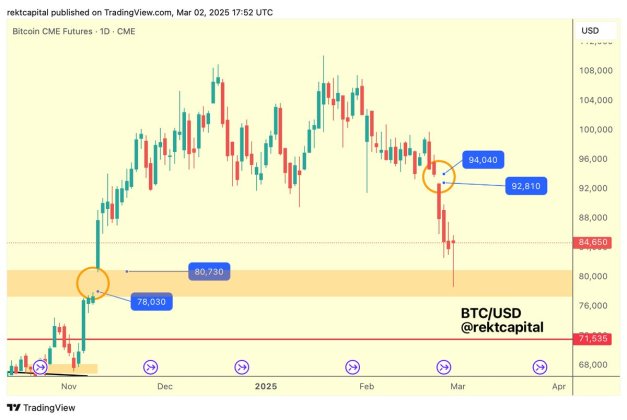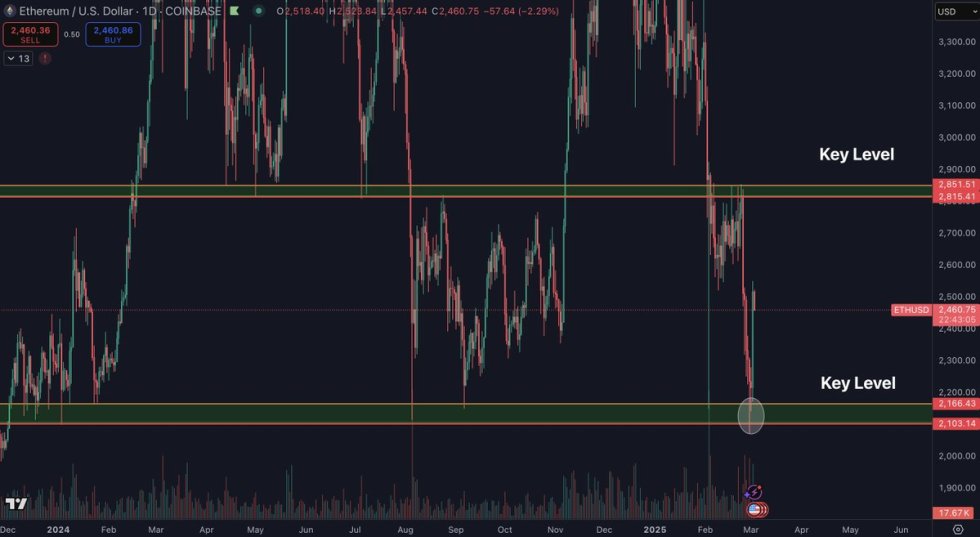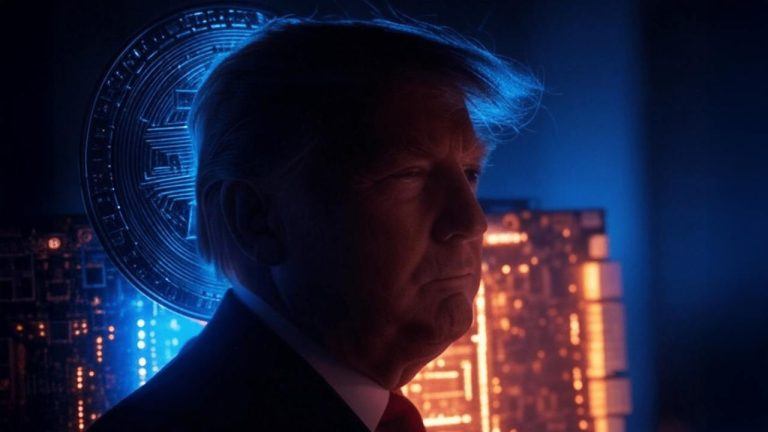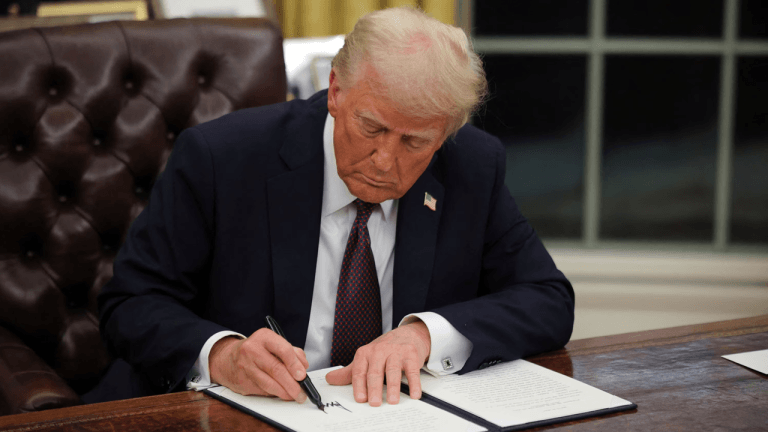The Securities and Exchange Commission (SEC) has decided to add at least 20 more enforcement positions dedicated to the crypto industry, making the total enforcement staff focused on virtual assets to 50. This change could mean more worries for asset exchanges as the SEC is reconsidering and broadening what it regards as 'securities'. Experts tracking these developments believe that the SEC will increase its scrutiny to look into start-up ventures violating the regulations. Many things will come under the direct scrutiny of the SEC, including stablecoins, NFTs (non-fungible tokens), and platforms that trade virtual currencies as securities. Some experts like the partner at Akin Gump Strauss Hauer & Feld LLP Ian McGinley say that they expect greater monitoring of decentralized finance platforms (or DeFi). DeFi platforms facilitate direct peer-to-peer financial transactions without any intermediaries. The SEC Chief, Gary Gensler is already interested in examining these DeFi platforms. There is also a lot of power concentration in the top DeFi platforms. The top five DeFi platforms control 80% of the total trading.
The SEC has already been doubling its efforts against crypto platforms allowing users to lend and borrow assets and provide interest payments. Recently, the SEC filed a case against BlockFi, a crypto lending platform. BlockFi charged a variable interest rate for lending crypto assets on its platform, a practice that falls under the ambit of the SEC’s securities laws. The platform had to pay $100 million in damages to settle these charges of not taking appropriate measures to register their securities. Additionally, BlockFi agreed to register all its securities in the future.
NFTs
The SEC also expects to pursue cases against the latest development in digital assets, called NFTs. In the case of NFTs, the buyers purchase the distributed ledger on which an NFT exists. NFT owners do not always own the original assets; they have unique ownership over their digital marker. Besides art, NFTs can be used for representing digital markers for other items like company shares or used as currency in video games. The SEC will likely increase its scrutiny over NFTs since it’s taking measures against some NFT projects for selling non-registered securities. The states of Alabama and Texas were taking measures against those selling unregistered NFTs to finance online casinos. However, the new SEC action plan will bring changes to this dynamic. States are curious about more details on the new action plan regulating securities.
Under the new plan, the enforcement team will go after decentralized finance applications that are not as decentralized as they claim to be. They will also target virtual assets that are being sold as unregistered securities. Ultimately, the new regulation will target cryptocurrency exchanges selling unregistered securities. DeFi platforms will also face high scrutiny due to their largely unregulated nature and covert centralization.
Stablecoins
Another area that the regulation will hit is stablecoins. Deploying a market arbitrage system, stablecoins are supposed to maintain a value of $1 per coin. Despite being one of the largest digital assets, the TerraUSD stablecoin lost 98% of its value in early May. Ever since the value of the stablecoin remains low. Stablecoins, initially aimed at buying other products, are now primarily used to purchase other crypto assets. The SEC is closely monitoring its activity because of its potential to aid illicit financial activities and fraud. Stablecoins are drawing attention not just from the SEC but also from banking regulators, the IRS and the Treasury Department.
Redefining the Meaning of Security Dealer
The new SEC proposal plans to redefine the meaning of ‘dealer’ to incorporate businesses and people who use algorithmic and automated trading technology to trade and liquidate the financial market. However, crypto lawyers have been calling this an ‘attack against decentralized finance’. The new proposal will bring all liquidity providers and automated market markers with over $50 million in assets under the administration of the SEC. Under the securities law, any crypto exchange that fits within the new criteria but does not register with SEC could be declared unauthorized.
Some crypto advocates think that it is a deliberate attempt to target the crypto industry as there is not much mention of cryptocurrencies except in a small footnote. This is a lack of clarity regarding how this proposal will affect the crypto sector. Although the SEC is promoting exchanges to ‘come and register’, it is not abundantly clear about how and when. Crypto advocates are seeing such vagueness as a sign of a ban rather than a regulatory requirement.
Expanding the Definition of Exchange
The SEC Chief, Gary Gensler has been talking about the crypto industry ever since he stepped into the chair. The new SEC proposal can have implications for the crypto industry, particularly the DeFi platforms, as they put these platforms under the direct purview of the SEC. The proposal expands the definition of 'exchange' to incorporate 'communication protocol systems'. Crypto advocates are already concerned about this move since they suspect it could sweep down the industry. Although the 654-page proposal does not mention cryptocurrency or DeFi, the change in the definition of exchange can potentially have huge implications for the crypto industry.
Broadening the definition means bringing a range of crypto products within its purview. The proposal mentions the registration and trading of securities, and the SEC has clarified that many crypto assets are considered securities. Therefore, anyone working on a DeFi platform has to potentially register with the SEC even if they aren’t directly involved with the company. Since many DeFi protocols operate on automated software or DAO and are not owned by a company, it is unclear how the SEC will regulate them. Similarly, many DeFi protocols operating in the US are not owned by US citizens. Regulating them becomes a challenge too.
Gensler has made it clear that he wants the SEC to protect individual and institutional crypto investors. It is unclear how it will crack down on genuinely decentralized platforms even though it is going after centralized trading platforms. The SEC might have passed these laws, but the execution seems like a muddy road ahead.
The Securities and Exchange Commission (SEC) has decided to add at least 20 more enforcement positions dedicated to the crypto industry, making the total enforcement staff focused on virtual assets to 50. This change could mean more worries for asset exchanges as the SEC is reconsidering and broadening what it regards as 'securities'. Experts tracking these developments believe that the SEC will increase its scrutiny to look into start-up ventures violating the regulations. Many things will come under the direct scrutiny of the SEC, including stablecoins, NFTs (non-fungible tokens), and platforms that trade virtual currencies as securities. Some experts like the partner at Akin Gump Strauss Hauer & Feld LLP Ian McGinley say that they expect greater monitoring of decentralized finance platforms (or DeFi). DeFi platforms facilitate direct peer-to-peer financial transactions without any intermediaries. The SEC Chief, Gary Gensler is already interested in examining these DeFi platforms. There is also a lot of power concentration in the top DeFi platforms. The top five DeFi platforms control 80% of the total trading.
The SEC has already been doubling its efforts against crypto platforms allowing users to lend and borrow assets and provide interest payments. Recently, the SEC filed a case against BlockFi, a crypto lending platform. BlockFi charged a variable interest rate for lending crypto assets on its platform, a practice that falls under the ambit of the SEC’s securities laws. The platform had to pay $100 million in damages to settle these charges of not taking appropriate measures to register their securities. Additionally, BlockFi agreed to register all its securities in the future.
NFTs
The SEC also expects to pursue cases against the latest development in digital assets, called NFTs. In the case of NFTs, the buyers purchase the distributed ledger on which an NFT exists. NFT owners do not always own the original assets; they have unique ownership over their digital marker. Besides art, NFTs can be used for representing digital markers for other items like company shares or used as currency in video games. The SEC will likely increase its scrutiny over NFTs since it’s taking measures against some NFT projects for selling non-registered securities. The states of Alabama and Texas were taking measures against those selling unregistered NFTs to finance online casinos. However, the new SEC action plan will bring changes to this dynamic. States are curious about more details on the new action plan regulating securities.
Under the new plan, the enforcement team will go after decentralized finance applications that are not as decentralized as they claim to be. They will also target virtual assets that are being sold as unregistered securities. Ultimately, the new regulation will target cryptocurrency exchanges selling unregistered securities. DeFi platforms will also face high scrutiny due to their largely unregulated nature and covert centralization.
Stablecoins
Another area that the regulation will hit is stablecoins. Deploying a market arbitrage system, stablecoins are supposed to maintain a value of $1 per coin. Despite being one of the largest digital assets, the TerraUSD stablecoin lost 98% of its value in early May. Ever since the value of the stablecoin remains low. Stablecoins, initially aimed at buying other products, are now primarily used to purchase other crypto assets. The SEC is closely monitoring its activity because of its potential to aid illicit financial activities and fraud. Stablecoins are drawing attention not just from the SEC but also from banking regulators, the IRS and the Treasury Department.
Redefining the Meaning of Security Dealer
The new SEC proposal plans to redefine the meaning of ‘dealer’ to incorporate businesses and people who use algorithmic and automated trading technology to trade and liquidate the financial market. However, crypto lawyers have been calling this an ‘attack against decentralized finance’. The new proposal will bring all liquidity providers and automated market markers with over $50 million in assets under the administration of the SEC. Under the securities law, any crypto exchange that fits within the new criteria but does not register with SEC could be declared unauthorized.
Some crypto advocates think that it is a deliberate attempt to target the crypto industry as there is not much mention of cryptocurrencies except in a small footnote. This is a lack of clarity regarding how this proposal will affect the crypto sector. Although the SEC is promoting exchanges to ‘come and register’, it is not abundantly clear about how and when. Crypto advocates are seeing such vagueness as a sign of a ban rather than a regulatory requirement.
Expanding the Definition of Exchange
The SEC Chief, Gary Gensler has been talking about the crypto industry ever since he stepped into the chair. The new SEC proposal can have implications for the crypto industry, particularly the DeFi platforms, as they put these platforms under the direct purview of the SEC. The proposal expands the definition of 'exchange' to incorporate 'communication protocol systems'. Crypto advocates are already concerned about this move since they suspect it could sweep down the industry. Although the 654-page proposal does not mention cryptocurrency or DeFi, the change in the definition of exchange can potentially have huge implications for the crypto industry.
Broadening the definition means bringing a range of crypto products within its purview. The proposal mentions the registration and trading of securities, and the SEC has clarified that many crypto assets are considered securities. Therefore, anyone working on a DeFi platform has to potentially register with the SEC even if they aren’t directly involved with the company. Since many DeFi protocols operate on automated software or DAO and are not owned by a company, it is unclear how the SEC will regulate them. Similarly, many DeFi protocols operating in the US are not owned by US citizens. Regulating them becomes a challenge too.
Gensler has made it clear that he wants the SEC to protect individual and institutional crypto investors. It is unclear how it will crack down on genuinely decentralized platforms even though it is going after centralized trading platforms. The SEC might have passed these laws, but the execution seems like a muddy road ahead.

You can get bonuses upto $100 FREE BONUS when you:
💰 Install these recommended apps:
💲 SocialGood - 100% Crypto Back on Everyday Shopping
💲 xPortal - The DeFi For The Next Billion
💲 CryptoTab Browser - Lightweight, fast, and ready to mine!
💰 Register on these recommended exchanges:
🟡 Binance🟡 Bitfinex🟡 Bitmart🟡 Bittrex🟡 Bitget
🟡 CoinEx🟡 Crypto.com🟡 Gate.io🟡 Huobi🟡 Kucoin.




















Comments